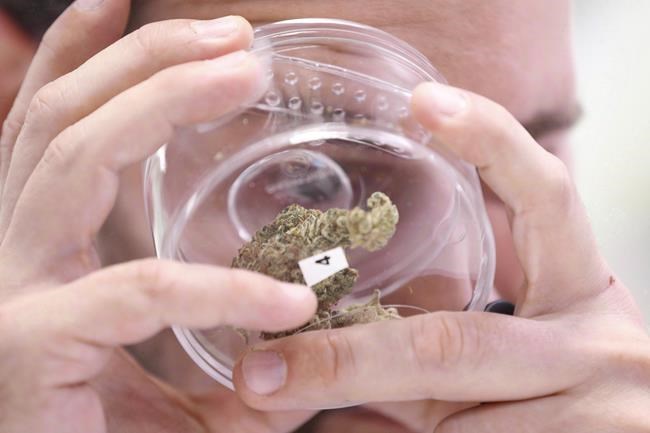TORONTO — Ontario’s auditor general says some cannabis products are often out of stock because the province’s pot retailer is inaccurately forecasting inventory levels.
In a report released Wednesday, Bonnie Lysyk detailed how problems plaguing the Crown corporation running the Ontario Cannabis Store, the province's pot distributor, leave customers empty-handed and licensed producers frustrated.
Lysyk reached that conclusion by comparing the corporation's inventory forecasts made between January and June 2021 with actual demand. She found the corporation's predictions were frequently off by wide margins.
In some instances where the OCS forecast fell short of customer orders, there were 145 per cent more orders than product available.
In instances where the forecast was higher than orders, the oversupply was about 40 per cent more than actual orders.
The corporation blamed the inaccurate forecasting on restrictions the province placed on in-store shopping during the COVID-19 pandemic, but Lysyk found the corporation never completed a formal analysis to confirm this claim or quantify the difference between forecasts and orders.
Inaccurate forecasts mean there's a mismatch between what customers want to buy and the products for sale, which often translates into unhappy customers. Worse than that, Lysyk said, it could fuel the illicit market the province has been desperately trying to minimize.
The illicit market accounts for most cannabis purchases in Ontario, more than three years after it was legalized. The OCS estimates the illicit market was responsible for at least 52.9 per cent of the province's pot purchases made between April 1 and June 30.
High Tide Inc., a pot retailer behind 31 Cana Cabana and Meta Cannabis shops in Ontario, has made similar observations.
“Due to the way the OCS ordering schedule was set up, there have been cases of under-forecasting and at times an absence of equal access to products by retailers based on their order cycle," said the company's senior vice-president of corporate affairs Omar Khan, in an email.
OCS deliveries typically arrive on the same day each week. When inventory sells quickly, stores with shipments later in the week may not receive the same amount as stores with earlier delivery.
The OCS eventually told High Tide it was working to resolve these problems. Khan hopes that happens "as quickly as possible."
OCS spokesman Daffyd Roderick said many of Lysyk's findings align with areas it is already prioritizing.
For example, he said work is underway to use point-of-sale technology to automate more of the sales reporting, which would improve inventory management and forecasting.
On top of erroneous forecasting, Lysyk also took issue with how little clarity the corporation has given licensed pot producers about how it selects products for sale and sets prices.
The corporation placed a February call-out for new products and received 966 submissions from 100 producers, but only listed 209 products from 59 producers for sale, the auditor's report found.
Lysyk's office reviewed the submissions and found the corporation's category managers only documented their final decisions and not how they reached their conclusions.
There was no scorecard used for assessments until April, when one was implemented, but Lysyk said "it is not clear if the scorecard is being effectively used."
She also found there is no appeals process for products that are rejected and only two of the six category managers making decisions on what gets listed have cannabis experience. The rest have a background in drink, home decor and apparel.
Once products are selected for listing, Lysyk found licensed producers often aren't given ample time to prepare.
New products can take up to 16 weeks to produce, but eight per cent of purchase orders made in February for new products were issued less than three weeks before the required delivery date.
Just shy of 90 per cent of purchase orders were issued between three and four weeks ahead of delivery, and only four per cent were made with more than four week's notice.
"Many licensed producers we interviewed expressed concerns about the difficulty in meeting OCRC’s purchase requests within the short turnaround time," Lysyk's report said.
Licensed producers said they have to prioritize the Ontario market over other provinces in order to meet OCRC’s timelines and quantities.
Roderick says the OCS launched a new product listing process in October and internal process and transparency improvements meant to help licensed producers are "already well underway."
This report by The Canadian Press was first published Dec. 1, 2021.
Tara Deschamps, The Canadian Press



